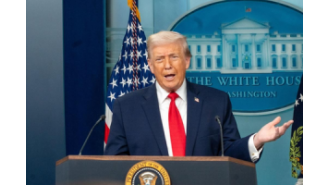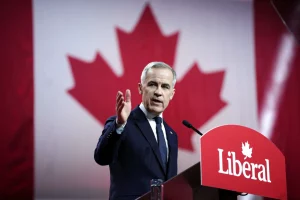Voter turnout for the recent General Election was the lowest it has been since 1945.
It's unprecedented in British politics for a party to win many seats with such a low vote share.

The results of the 2024 UK General Election are in, and it seems that Labour has emerged victorious. However, the party's victory may not be as resounding as it appears at first glance. According to experts, the low voter turnout may be a sign that this win is more of a default rather than a result of a strong surge of support for Labour.
As the votes continue to be counted, it is clear that Labour has already secured enough seats to form a parliamentary majority. This has been a major blow to the Conservatives, who have faced a complete thrashing in this election. The pendulum seems to have swung towards Labour, but not necessarily due to a groundswell of support.
Labour has managed to secure its majority with a vote share of around 36%, which is significantly lower than their historic win in 1997. This has left experts like Stuart Wilks-Reed, a professor of politics at Liverpool University, scratching their heads. He points out that this vote share is more in line with Tony Blair's third term as Prime Minister, rather than the landslide victory in 1997.
The counting of millions of votes overnight has been a hectic process, but the overall turnout has been quite low. Despite this, thousands of people have worked tirelessly to count these votes. It is clear that there has been a restoration of Labour's so-called "red wall", with a continuous run of seats from North Wales to Scotland and even in some southern and eastern regions that have not been red for decades.
Professor Wilks-Reed also notes that there is no precedent in British politics for a party to win such a significant number of seats with such a small share of the vote. He predicts that once all the results are in, the electoral map will look remarkably similar to the one from 1997. Additionally, the low turnout in this election is a cause for concern, with estimates placing it as one of the lowest since 1945.
John Curtice, a professor of politics at the University of Strathclyde, attributes the low turnout to several factors, including early polls that predicted a huge Labour lead and a general mistrust in politics. He also points out that voters see little difference between Labour and the Conservatives, with both parties having unpopular leaders.
Speaking of turnout, current estimates suggest that it is below 60%, a significant decrease from the 67% in the previous election. Several constituencies have seen voter turnouts as low as 40%, which is exceptionally low. For example, in Hull East, the turnout was only 42.3%, while in Smethwick, it was 48%. Even in Keir Starmer's seat of Holborn and St Pancras, the estimated turnout was 54.6%, a drop of more than 10% from the last election.
Professor Wilks-Reed predicts that the Reform UK party, led by Richard Tice, may face the same problem that the Liberal Democrats faced in previous years. He notes that while the Reform vote was consistent across England, it may not be enough to win many seats. This outcome may reignite discussions about electoral reform.
Despite Labour's apparent landslide victory, there are signs of trouble within the party itself. While they were able to displace George Galloway in Rochdale, it was a close race. In addition, it seems that Labour's stance on Gaza may have cost them seats in Leicester East and Leicester South. To make matters worse, former Labour leader Jeremy Corbyn won as an independent in Islington North, which could prove to be a thorn in Starmer's side.
Professor Wilks-Reed believes that the small contingent of Reform MPs will be enough for the party to build on. He also predicts that Nigel Farage, who joined the Reform party, will use his place in parliament to strengthen his own profile and that of the party. Overall, this election result has left many questioning the state of British politics and the future of the Labour party.










